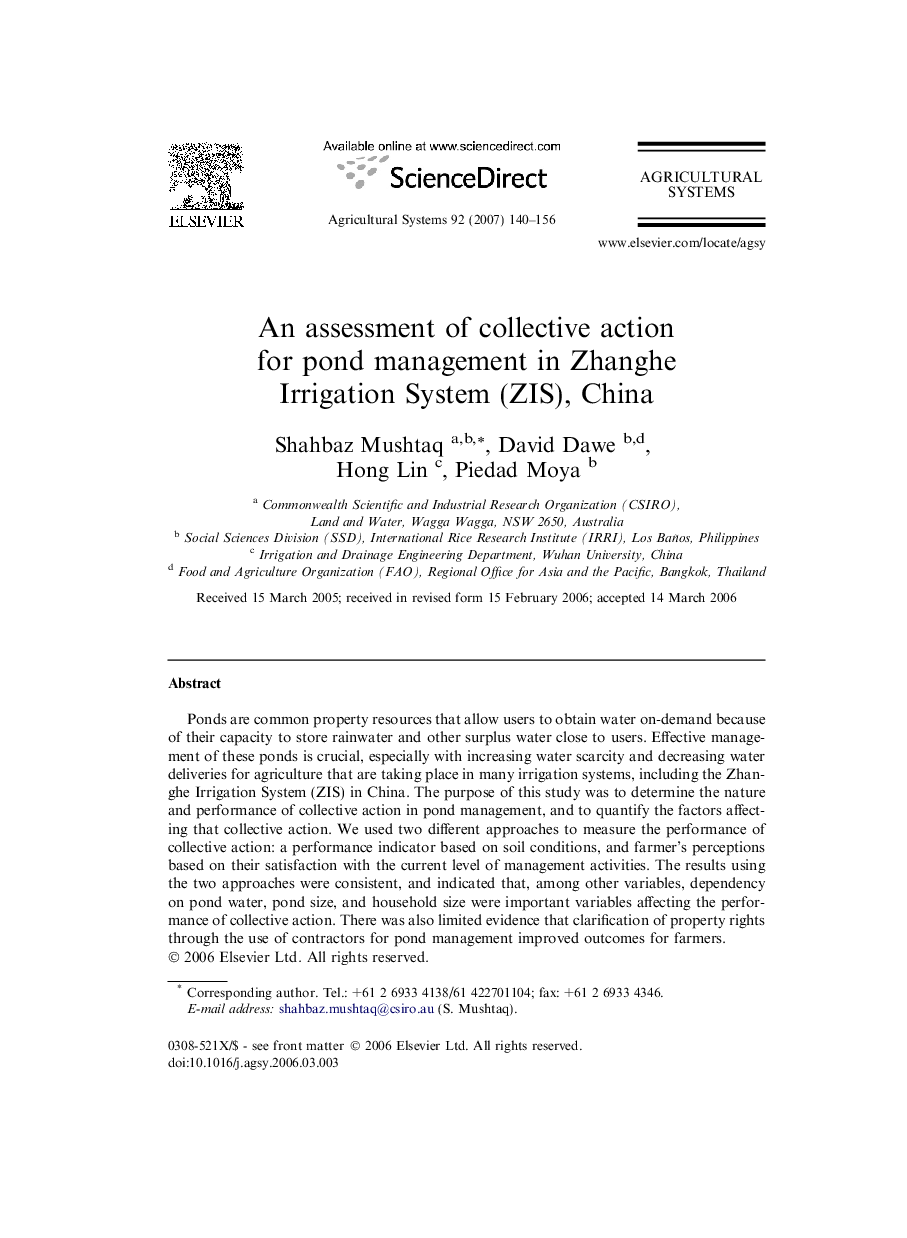| Article ID | Journal | Published Year | Pages | File Type |
|---|---|---|---|---|
| 4491898 | Agricultural Systems | 2007 | 17 Pages |
Ponds are common property resources that allow users to obtain water on-demand because of their capacity to store rainwater and other surplus water close to users. Effective management of these ponds is crucial, especially with increasing water scarcity and decreasing water deliveries for agriculture that are taking place in many irrigation systems, including the Zhanghe Irrigation System (ZIS) in China. The purpose of this study was to determine the nature and performance of collective action in pond management, and to quantify the factors affecting that collective action. We used two different approaches to measure the performance of collective action: a performance indicator based on soil conditions, and farmer’s perceptions based on their satisfaction with the current level of management activities. The results using the two approaches were consistent, and indicated that, among other variables, dependency on pond water, pond size, and household size were important variables affecting the performance of collective action. There was also limited evidence that clarification of property rights through the use of contractors for pond management improved outcomes for farmers.
